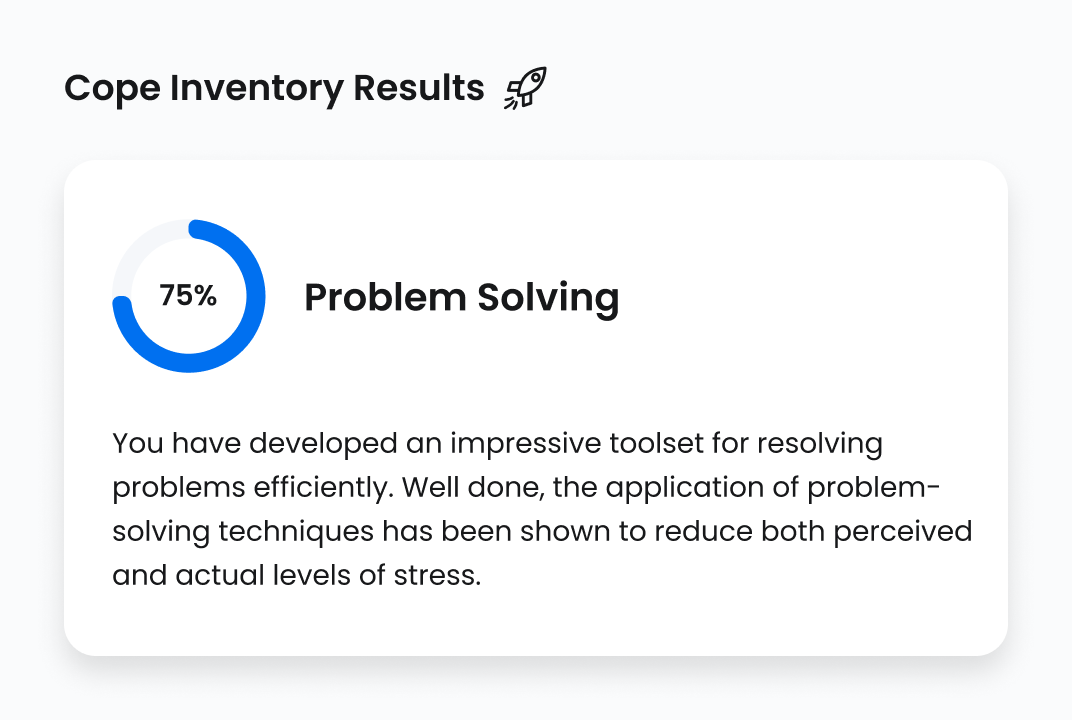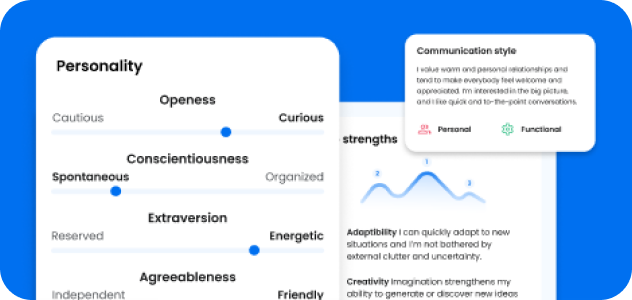Coping Inventory

Scientific assessments, with this one grounded on the Carver model of coping.
Benefits
Gyfted’s free values survey questionnaire provides you with insights into what your coping mechanisms are. You will be able to better understand how you manage stress. This knowledge can help you avoid ineffective coping strategies as a student, as well as at work, based on active and passive coping mechanisms.
Why is this of value to me?
How you can use this test?
How it works?
you’re at ease, undisturbed
and ready to focus.
you through the process. It’s
easy - just go with your gut
feeling.
you will receive your
feedback immediately
anyone, with just a click of a
button
What's Inside? Get immediate feedback by measuring these traits in you
Coping Inventory
Assessment Insights
Scientific and Empirical Foundations
The original study introducing the COPE Inventory: Carver, C. S., Scheier, M. F., & Weintraub, J. K. (1989). Assessing coping strategies: A theoretically based approach. Journal of Personality and Social Psychology, 56(2), 267-283. Review of coping strategies: Lazarus, R. S., & Folkman, S. (1984). Stress, appraisal, and coping. Springer. Application of coping strategies in personal growth: Suls, J., & Fletcher, B. (1985). The relative efficacy of avoidant and nonavoidant coping strategies: A meta-analysis. Health Psychology, 4(3), 249-288. Use of coping strategies in the workplace: Krohne, H. W. (2002). Stress and coping theories. In International encyclopedia of the social & behavioral sciences (pp. 15163-15170). Pergamon. The role of coping strategies in leadership development: Quick, J. C., Wright, T. A., Adkins, J. A., Nelson, D. L., & Quick, J. D. (2013). Preventive stress management in organizations. American Psychological Association. Coping strategies in team dynamics: Driskell, T., Salas, E., & Driskell, J. E. (2018). Stress, performance, and decision making in organizations. In Decision making in high-stakes environments (pp. 217-236). Routledge.


